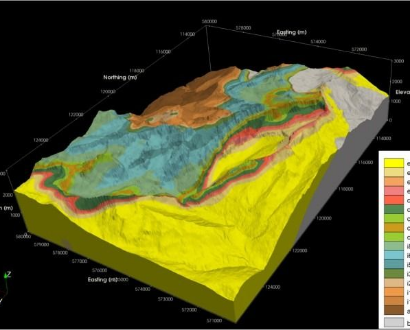

WWE
WWE (World Wrestling Entertainment): WWE is a global entertainment company known for professional wrestling. It features a diverse roster of charismatic wrestlers who engage in scripted storylines and choreographed matches. WWE has two main brands, "Raw" and "SmackDown," numerous championships, and hosts iconic pay-per-view events like WrestleMania. It has a rich history, a Hall of Fame, and a significant global following. WWE also offers a streaming service, WWE Network (or Peacock in the US), and is a major player in merchandise and licensing. The company has undergone a "Women's Revolution" to promote female talent more prominently.
What you'll learn
General Knowledge: I can provide information on a broad spectrum of topics, from history and science to pop culture and current events.
Writing Assistance: I can help you with writing tasks, including composing essays, creating content, and improving your writing skills.
Language and Grammar: If you have questions about language usage, grammar, punctuation, or language learning, I can provide guidance.
Problem Solving: I can assist with problem-solving in various areas, such as mathematics, science, and everyday life challenges.
Coding and Programming: I can provide code examples, explanations, and assistance with programming-related questions.
Product Recommendations: I can suggest products, books, movies, and other items based on your preferences and needs.
Health and Wellness: While I can provide general health information, please consult a healthcare professional for personalized medical advice.
Travel Recommendations: I can suggest travel destinations, tips, and advice for planning trips.
Historical Information: You can ask about historical events, figures, and eras.
Entertainment: I can provide information about movies, music, TV shows, and more.
Science and Technology: I can explain scientific concepts and provide information on technological topics.
Language Translation: I can translate text between various languages.
Cooking and Recipes: I can offer cooking tips, recipes, and culinary advice.
Education and Learning: I can assist with learning strategies, study tips, and information on educational topics.
And Much More: Feel free to ask about virtually any topic or seek assistance with tasks and inquiries. However, please note that I do not provide medical, legal, or financial advice.
This Course Includes
Course Title and Description: Every course typically has a title and a brief description that outlines its purpose and what students can expect to learn.
Course Materials: This includes textbooks, articles, videos, or any resources that students will need to study and reference throughout the course.
Lectures or Lessons: Most courses involve lectures or lessons delivered by an instructor or through online modules. These lectures can be in-person or via video conferencing or e-learning platforms.
Assignments and Homework: Courses often require students to complete assignments, homework, or projects to reinforce their understanding of the material and demonstrate their knowledge.
Exams and Assessments: Assessments, such as quizzes, mid-term exams, and final exams, are commonly used to evaluate students' comprehension of the course material.
Discussion and Interaction: Many courses encourage student interaction through group discussions, forums, or collaborative projects. This fosters a deeper understanding of the subject and allows for peer learning.
Practical Labs or Workshops: In science, engineering, and technical fields, courses may include hands-on lab sessions or workshops to apply theoretical knowledge in a practical setting.
Grading and Evaluation: Courses have grading systems that determine how students' performance will be evaluated. Grading criteria are typically outlined in the course syllabus.
Syllabus: A course syllabus is a document that provides a detailed outline of the course, including the schedule of topics, reading assignments, and assessment dates.
Office Hours or Support: Instructors often offer office hours or online support sessions where students can ask questions, seek clarification, or discuss course-related matters.
Feedback and Evaluation: Courses may include feedback mechanisms, such as surveys or evaluations, to gather input from students about the quality of the course and the teaching methods used.
Certificates or Credits: For formal courses, students may receive certificates, grades, or academic credits upon successful completion.
Prerequisites: Some courses have prerequisites, which are other courses or qualifications that students must have completed before enrolling.
Course Goals and Objectives: Instructors usually set clear learning objectives and goals for the course, outlining what students should be able to achieve by the end.
Additional Resources: Depending on the subject, courses may recommend or provide additional resources, such as online tutorials, research papers, or reference materials.
Course Content
Requirements
System Requirements: In the context of software or hardware, system requirements are specifications that outline the minimum hardware, software, and other conditions necessary for a particular program or device to function properly. These requirements help users determine if their computer or device is compatible with the software or hardware in question.
Educational Requirements: Educational requirements are the qualifications, degrees, or certifications needed for a specific job or academic program. For example, a job posting might list a bachelor's degree as an educational requirement, or a graduate program might require specific prerequisites for admission.
Project Requirements: In project management, requirements are detailed descriptions of what a project should achieve. These can include functional requirements (what the project should do), non-functional requirements (how it should perform, such as speed or security), and technical requirements (specific technologies to be used).
Regulatory Requirements: Regulatory requirements are rules and standards set by government agencies or industry bodies that must be followed. These can apply to various fields, such as healthcare, finance, and manufacturing, and they often include safety, security, and compliance standards.
Job Requirements: When applying for a job, job requirements are the qualifications, skills, experience, and attributes expected of a candidate. These requirements are typically listed in a job posting and help both employers and applicants understand the qualifications needed for the position.
Legal Requirements: Legal requirements refer to laws and regulations that individuals, organizations, or businesses must adhere to. These requirements can encompass a wide range of topics, from tax laws to environmental regulations.
Description
World Wrestling Entertainment (WWE): WWE is a globally renowned entertainment juggernaut that blends professional wrestling with scripted storytelling and theatrical performances. Established in 1952 as Capitol Wrestling Corporation (CWC) and rebranded as WWE in 2002, it features a diverse roster of charismatic superstars who engage in choreographed matches and captivating storylines. WWE operates with a brand split between "Raw" and "SmackDown," each with its own championships, and hosts iconic pay-per-view events like WrestleMania. The company has a rich history, an annual Hall of Fame induction ceremony, and a substantial global following, regularly touring internationally. WWE also offers a streaming service, WWE Network (or Peacock in the US), and has embraced a "Women's Revolution" to elevate female talent. Its brand extends to merchandise, licensing agreements, video games, and themed restaurants, making WWE a dominant force in sports entertainment.
Student Feedback
Reviews
Instructor Background
About the company
Our Most Popular Courses
10,000+ unique online course list designs



















Ali Tufan 3 Days ago
The best LMS Design
This course is a very applicable. Professor Ng explains precisely each algorithm and even tries to give an intuition for mathematical and statistic concepts behind each algorithm. Thank you very much.
John Malcolm 3 Days ago
The best LMS Design
This course is a very applicable. Professor Ng explains precisely each algorithm and even tries to give an intuition for mathematical and statistic concepts behind each algorithm. Thank you very much.